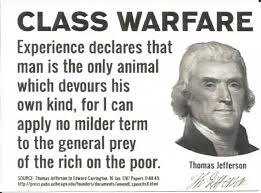
Living through the pandemic here in New Orleans gives one the dubious opportunity to see first-hand how the Covid 19 virus disproportionately affects the poor and the non-white. There is a myth being propagated in the country that the virus is an indiscriminate killer, that rich and poor alike are vulnerable, that we are all in this together. That, my friends, is rubbish.
There is a gigantic underclass in our country. They are the retail clerks and shelf stockers at Winn Dixie down the street. They are the healthcare aides caring for the elderly at the Poydras Home or Lambeth House. They are janitors, and maids, and self employed landscapers mowing the lawns of the rich. They have to continue working for at least two reasons: they can’t afford to miss even one paycheck, and they will lose their jobs if they don’t come to work. Many in underclass subsist on fast food and become obese. Many cannot possibly exercise after spending their days doing physical labor. Most are uninsured or under-insured, so they don’t regularly see a doctor who might warn them about the danger of the pre-existing conditions that make them the prey of Covid 19.
Deaths among African-Americans account for more than 70 percent of total Covid 19 deaths in Louisiana, a figure wildly out of balance with the proportion of African-Americans living in the state, 32 percent. More than two-thirds of the deaths have occurred in less than one-third of our population. This is no accident.
A few days ago, my old friend Fitz McAden, who is also the editor of this blog, called my attention to two editorial pieces in The New York Times. He thought they sounded a bit like the Quixotic Deacon. The pieces announce an initiative by the Times that is exciting and urgent. Loaded with compelling data, the editorials document how far America has strayed from the humanitarian ideals that are supposed to frame our political agenda. They argue that Covid 19 has put into the sharpest relief the shortcomings of a government that was supposed to balance prosperity, benevolence and equality. They assert that the pandemic has underscored the imperative for change, and that resisting it will further corrode our imperfect democracy.
So, I urge you to read these editorials and think about them. I have become far too cynical about our country over the past four years. Sometimes I despair of ever being proud of being a U.S. citizen again. This initiative excites me and makes me just a bit less cynical. Maybe you will feel the same way. Here are the links.
